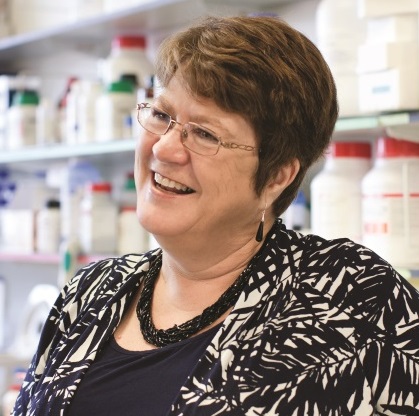Links to external sources may no longer work as intended. The content may not represent the latest thinking in this area or the Society’s current position on the topic.
The Future of Education: priorities for the next election

Thank you to the delegates who joined us at The Future of Education: priorities for the next election conference.
Please continue to add your views to Slido.
Summary
The disrupted education landscape over the course of the pandemic has highlighted the need to prioritise the sector in the next election. The conference will bring together a group of high-level stakeholders to discuss which key recommendations should be put forward to parties ahead of the next general election.
England currently has one of the narrowest education systems in the world, with pupils only studying 2.7 qualifications on average post-16. The Royal Society has long been a champion of reform in this area, recognising that young people need to be educated in a broad range of subjects not only to enter the workforce, but also to ensure emotional and mental wellbeing, and to equip them to be active participants in democracy and society.
On this page, you will find the agenda for the event in addition to details on how to join Slido which we will be using throughout the day.
This is an invite-only event held at the Royal Society. Find out more about about the venue.
Social media and Slido
Please join in the discussion on Twitter by using the hashtag #FutureOfEducation.
To join Slido, please visit https://app.sli.do/event/sjWmHNXMYgCFZXJisxzE3w.
For any questions relating to the education team's work at the Royal Society, please contact education@royalsociety.org.
Schedule
Chair

Professor Jane Clarke FMedSci FRS

Professor Jane Clarke FMedSci FRS
Jane Clarke is Professor of Molecular Biophysics in the Chemistry Department of the University of Cambridge. Her research is multidisciplinary, combining single molecule and ensemble biophysical techniques with protein engineering and simulations to investigate protein folding, misfolding and assembly. Her small research team includes chemists, biochemists and physicists.
Jane Clarke’s career is somewhat unusual. After several years teaching science in comprehensive schools she started a PhD at the age of 40 with Professor Sir Alan Fersht in Cambridge. After a postdoctoral fellowship in protein NMR spectroscopy at the MRC Centre for Protein Engineering in Cambridge, she won a Welcome Trust Career Development Fellowship and joined Cambridge University in 1997.
In her role as Deputy Head of the Chemistry Department in Cambridge, Professor Clarke became involved in mentoring, career development and leadership training for scientists at all stages in their careers. She is particularly interested to support women to stay in science. As a mother and grandmother she knows that it is possible to combine family life with a successful career.
|
The way we live has changed a great deal in the last 50 years - our education system has not. The way we work, the way we understand the world around us and the way we interact with each other and our wider society all require a greater range of skills and understanding. In England we have one of the narrowest education systems in the world. We force 16-year-olds to give up a wide range of subjects and the skills that come with them. We also have too great a focus on academic skills, neglecting the technical skills that are increasingly important. If we don’t make changes, today’s young people are not going to be prepared for the future, and existing regional, gender and socio-economic inequalities will continue. 
Sir Adrian Smith

Sir Adrian SmithAdrian Smith became President of the Royal Society on 30 November 2020. He is also Institute Director and Chief Executive of The Alan Turing Institute. He is a mathematician with expertise in Bayesian statistics. This branch of mathematics represents uncertainties in the form of probabilities, which are then modified through the mechanism of Bayes theorem as new information becomes available. Adrian's comprehensive publications on diverse areas of Bayesian statistics have had a major impact on statistical practice in a wide range of disciplines and application areas. Between 2008-2012, he was Director General, Knowledge and Innovation in BIS (now BEIS) and has previously worked with the UK Higher Education Funding and Research Councils. Adrian is Chair of the Board of the Diamond Light Source and is also a board member of the UK Atomic Energy Authority. In 2017, he carried out a review of the maths curriculum for 16-18 year olds for the Treasury and Department for Education. In the 2011 New Year Honours list, he was awarded the title of Knight Bachelor. |
|
In the wake of the Covid-19 pandemic, and in the face of declining social mobility, low productivity, globalisation, Brexit, the climate crisis and a worsening mental health crisis, the Times Education Commission urges that now is the crucial time to reform the education system. Despite these serious challenges, the pandemic has given Britain and the wider world pause for thought, and has presented a vital opportunity alongside the AI/4.0 revolution for the education system to accelerate the levelling up agenda, turbocharge the economy and make the country fairer and more equitable. The Times Education Commission is Britain's first commission that has looked from the early years, through school, to adult learning, with a goal to improve the education system for all learners today and in the future. 
Rachel Sylvester

Rachel SylvesterRachel Sylvester is chair of The Times Education Commission and a political columnist and interviewer at The Times. She started writing about politics in 1996 and was a lobby correspondent on The Daily Telegraph before becoming political editor of The Independent on Sunday. She joined The Times in 2008. Rachel was named Political Journalist of the Year at the 2016 Press Awards, also being named Journalist of the Year by the Political Studies Association and winning the Politics Journalism prize at the British Journalism Awards that same year. Rachel presents the ‘Past Imperfect’ podcast on Times Radio alongside frequent collaborator Alice Thomson, and their new book ‘What I Wish I’d Known When I Was Young: The Art and Science of Growing Up’ was published in May 2022. |
|
Chair

Rt Hon. David Laws

Rt Hon. David Laws
David joined the Education Policy Institute (EPI) as Executive Chairman in September 2015. Between 2010 and 2015, David served in the Coalition Government as Chief Secretary to the Treasury, Schools Minister, and Cabinet Office Minister. Whilst Schools Minister he was responsible for policy areas including all capital and revenue funding, the Pupil Premium, accountability and policy on teachers and leadership.
David was Member of Parliament for Yeovil from 2001 until 2015. David graduated from King’s College, Cambridge, with a double First-Class Honours degree in Economics and started out with a career in investment banking, working as a Vice President in J.P. Morgan’s Treasury Division and a Managing Director at Barclays de Zoete Wedd before moving into politics.

Professor Kathryn Mitchell

Professor Kathryn MitchellKathryn joined the University of Derby as Vice-Chancellor on 1 September 2015. Her academic background is in Psychology and she continues to play an active role in research. Before she came to Derby, Kathryn was Deputy Vice-Chancellor of the University of West London. She had special responsibility for academic provision and quality and was previously Pro Vice-Chancellor Academic and Student Support Services and Dean of Students. She was a Wellcome Fellow at the Institute of Psychiatry, London, for over seven years and studied at the Universities of York and London. Kathryn has worked at the University of Chicago, the Rockefeller Institute in New York and the Friedrich Miescher Institute in Basel. 
James Turner

James TurnerJames is the Chief Executive of the Sutton Trust and has been in post since February 2019. Prior to that, James was Deputy CEO of the Trust’s sister charity, the Education Endowment Foundation. He also led the Trust’s £135m bid to set up the EEF in 2011, was its interim CEO and served as a founding Trustee. James is also a trustee of the Centre for Homelessness Impact and a governor of a comprehensive school in the East Midlands, where he lives. 
Professor Helen James OBE

Professor Helen James OBEHelen James OBE is Professor (Emerita) and former Deputy Vice-Chancellor at Canterbury Christ Church University. She has over forty years in engineering, science and tertiary and higher education, holding a range of external leadership roles, including Director, Trustee and Chair. Currently, she is Chair, Education and Skills Board, IMechE; Trustee and Director of Turner Schools MAT; and member and former Founding Chair, Strategic Industry Advisory Board for the Kent and Medway Engineering, Design, Growth and Enterprise Hub (EDGE Hub). Helen has supported grass roots STEM outreach throughout her career and she founded Xplore!, the Science Discovery Centre in Wrexham, in direct response to her passion and commitment to increasing and widening participation in STEM. Helen undertook a mechanical engineering apprenticeship at Vickers Shipbuilding Ltd and tertiary education at Barrow in Furness College of FE from the age of 16. She subsequently became an armaments design engineer and environment test engineer and systems engineer in the Space industry. Helen believes passionately in the power of education to transform lives and create an inclusive society, and in the capacity for STEM to transform our economy, health and wellbeing. 
Yvonne Kelly

Yvonne KellyYvonne has been the Principal and CEO of Barking & Dagenham College since 2016, offering vocational, technical and professional education and training, from entry to level 7 to prepare young people and adults for further training, work or university. The College is diverse and inclusive, reflecting the local community of Barking and Dagenham both in terms of its student population, staff and leadership and governance team. The College is the lead partner of the East London Institute of Technology, one of 20 in the country. In partnership with higher education and employers, the IoT focuses on delivering advanced and higher technical education and training in Engineering & Manufacturing, Digital and Construction sectors. The College is also one of 20 colleges engaged in the World Skills Excellence Programme. Yvonne takes an active role as a trustee on the CITB, Creative and Cultural Skills and Care City; an advisor on the Pearson FE Reference Group and a member of the Green Skills Taskforce. Yvonne is a strong advocate of equality, diversity and inclusion and is passionate about ensuring young people and adults, particularly the most disadvantaged, have access to opportunities to transform their lives. Yvonne is a member of the WorldSkills UK Diversity and Inclusion Advisory Group and the Futures Youth Zone. |
|
|
